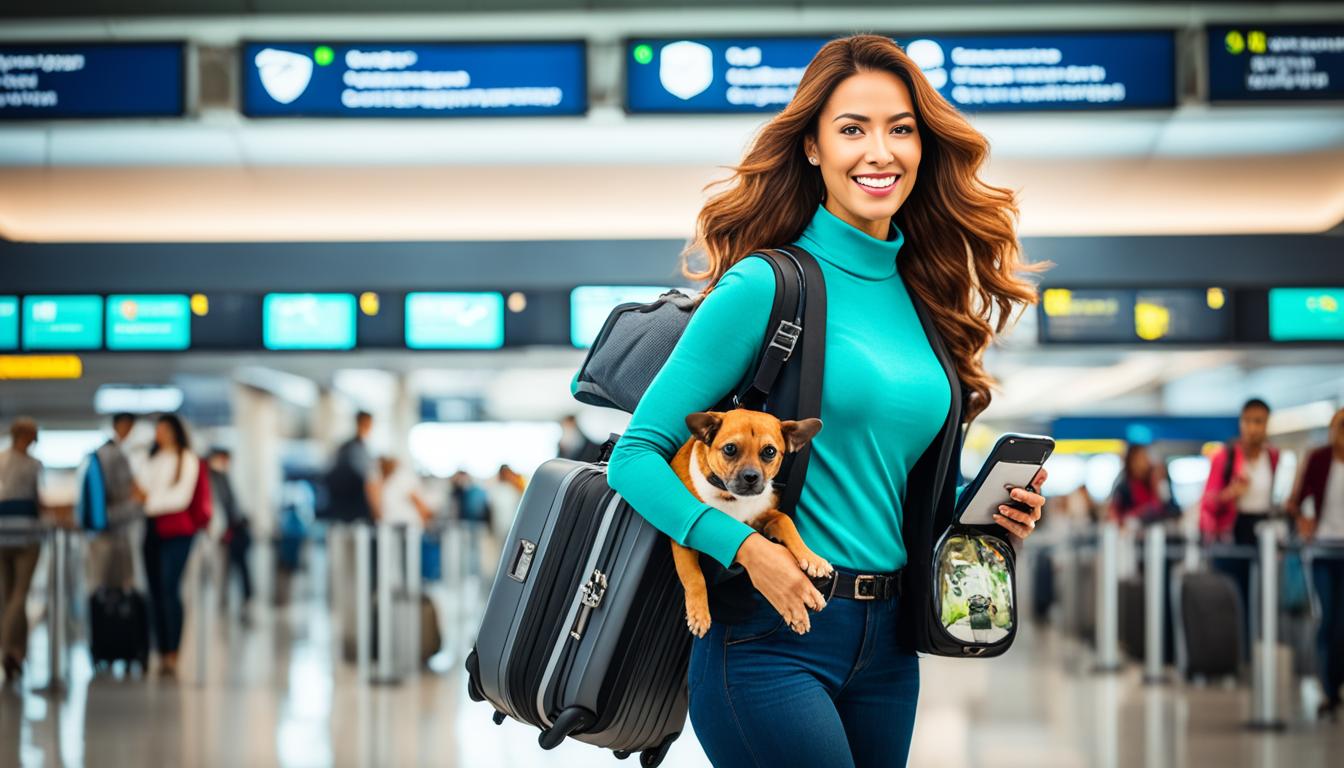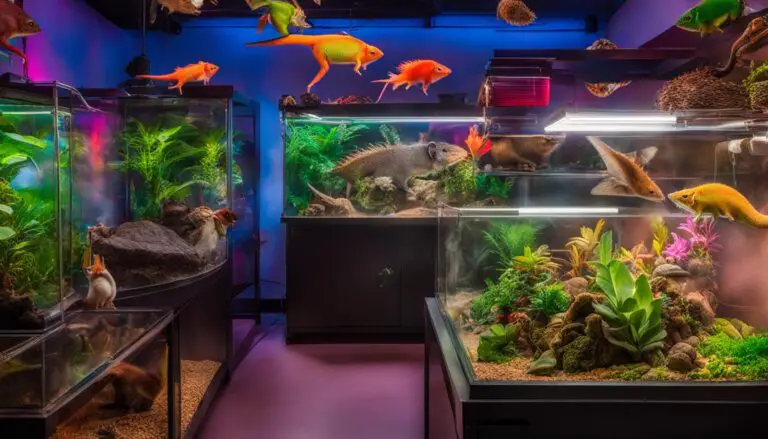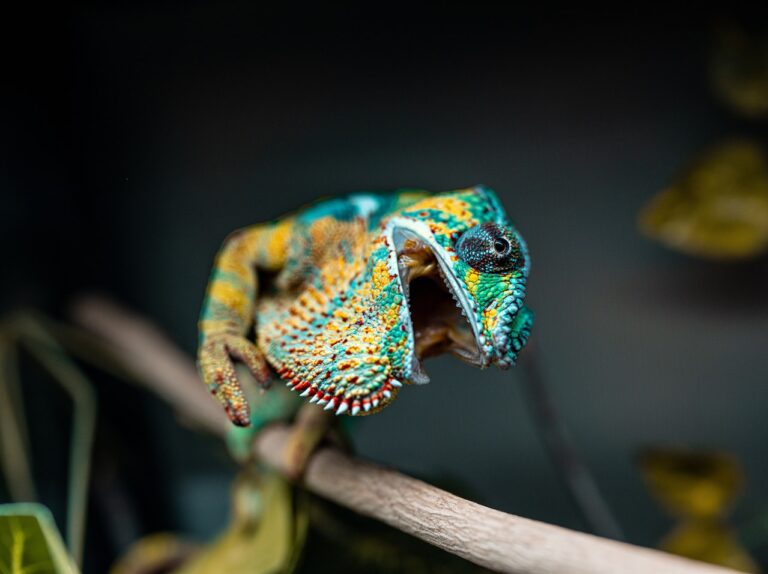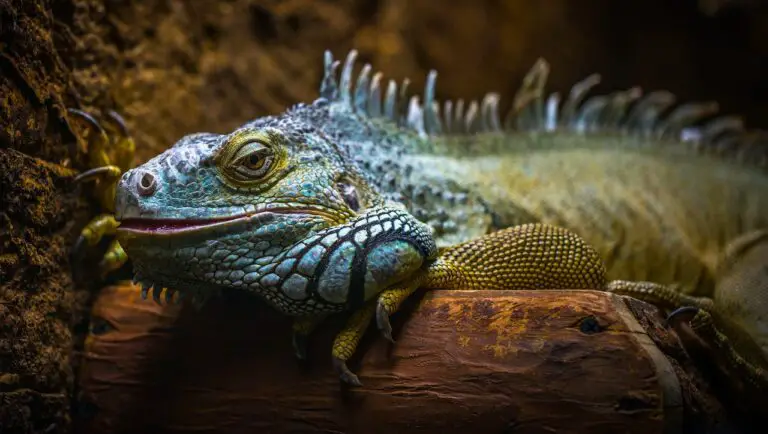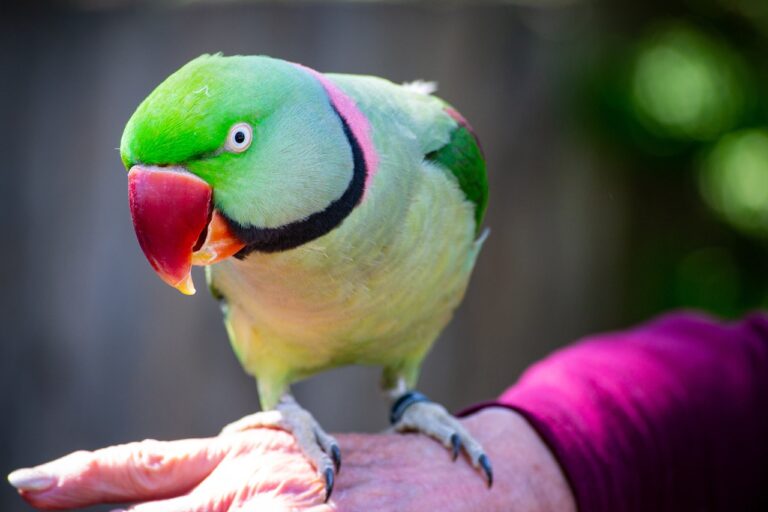Exotic Pet Care for Travelers: Tips & Advice
Welcome to our comprehensive guide on exotic pet care for travelers! If you’re a pet owner with a unique and exotic companion, we understand the importance of providing proper care even when you’re on the go. Whether you have a reptile, bird, or small mammal, we’re here to help you navigate the challenges of traveling with exotic pets.
In this article, we will provide you with valuable tips and advice to ensure the well-being and safety of your beloved exotic pet while on your adventures. From understanding their unique needs to selecting pet-friendly accommodations and managing their care on the go, we’ll cover everything you need to know. So pack your bags and get ready to explore with peace of mind, knowing that your exotic pet is in good hands.
Key Takeaways:
- Understanding the unique needs of your exotic pet is crucial for safe travel.
- Researching pet-friendly accommodations and booking the right room can make your trip stress-free.
- Ensure the travel safety of your exotic pet by choosing appropriate carriers and securing them during transportation.
- Provide essential care measures such as feeding schedules, exercise, and maintaining hygiene while traveling.
- Locate veterinarian-approved pet care services and be prepared for emergencies during your travels.
Understanding Exotic Pet Needs for Safe Travel
When it comes to traveling with exotic pets, it’s crucial to understand their unique needs to ensure their safety and well-being. Exotic pets, such as reptiles, birds, and small mammals, have different requirements compared to traditional cats and dogs. Failure to meet these needs can result in stress, illness, or even injury to your beloved pet.
Types of Exotic Pets and Their Unique Requirements
There are a wide variety of exotic pets, each with their own specific needs. Understanding these requirements is essential for providing appropriate care while traveling. Some common types of exotic pets include:
- Reptiles: Reptiles, like snakes and lizards, require specific temperature and humidity levels to maintain their health. Specialized enclosures with heat lamps and humidity control may be necessary.
- Birds: Birds, such as parrots and cockatiels, thrive on mental stimulation and social interaction. It’s important to provide them with travel-friendly toys and plenty of opportunities for socialization.
- Small mammals: Small mammals like hamsters and guinea pigs have specific dietary needs and require a comfortable and secure habitat.
Creating a Travel-Friendly Habitat
A travel-friendly habitat is essential for keeping your exotic pet safe and comfortable on the road. Consider the following tips when creating a habitat for your pet:
- Portable enclosures: Invest in a lightweight and durable enclosure that is easy to transport. Look for options that are easy to clean and provide ample ventilation.
- Environmental enrichment: Provide toys, perches, and hiding spots to keep your pet mentally stimulated during travel. This will help reduce stress and ensure a more pleasant journey.
- Temperature regulation: Ensure your pet’s habitat maintains a suitable temperature range. This may require portable heating or cooling devices, depending on the specific needs of your pet.
Nutritional Considerations on the Road
Maintaining proper nutrition is vital for the health and well-being of your exotic pet while traveling. Consider the following nutritional considerations:
- Research dietary requirements: Each type of exotic pet has specific dietary needs. Research and consult with a veterinarian to ensure your pet receives the right balance of nutrients.
- Portable food options: Invest in travel-sized portions of your pet’s regular food or consider freeze-dried alternatives that are easy to pack and store.
- Hydration: Ensure your pet has access to fresh water throughout the journey. Portable water dispensers or small water bottles specifically designed for pets can be useful.
| Exotic Pet Type | Temperature Regulation | Humidity Control | Environmental Enrichment | Dietary Requirements |
|---|---|---|---|---|
| Reptiles | Requires specific temperature ranges and access to heat lamps | Needs controlled humidity levels for optimal health | Benefits from hiding spots and perches for mental stimulation | May have unique dietary needs based on species |
| Birds | Requires comfortable temperature range and protection from drafts | May benefit from occasional misting or access to a bird bath for proper feather health | Needs toys and social interaction to prevent boredom | Requires a balanced diet consisting of seeds, pellets, fruits, and vegetables |
| Small Mammals | Requires a temperature-controlled environment to prevent overheating or chilling | May require specific humidity levels for certain species | Needs toys and tunnels for exercise and mental stimulation | Requires a diet consisting of fresh vegetables, hay, and fortified pellets |
Selection of Pet-Friendly Accommodations
Finding pet-friendly accommodations is essential for a stress-free trip with your exotic pet. Researching hotels and services that cater to travelers with pets will ensure a comfortable stay for both you and your furry friend.
Researching Hotels and Services
When it comes to choosing pet-friendly accommodations, thorough research is key. Start by looking for hotels that explicitly state their pet-friendly policies. Check if they have any restrictions on the types of pets allowed and if there are any size or breed limitations. Some hotels may also have specific guidelines for exotic pets.
Additionally, explore the amenities offered by the hotel. Look for features such as designated pet relief areas, pet-friendly walking trails, or even on-site pet services like grooming or pet sitting. These amenities can greatly enhance your pet’s experience during the stay.
Tips for Booking the Right Room
Once you have narrowed down your choices, it’s important to book the right room that suits both your needs and your pet’s requirements. Consider the following tips:
- Choose a room on the ground floor or with easy access to outdoor areas for convenience during pet potty breaks.
- Opt for a room with pet-friendly flooring to avoid any potential damage or accidents.
- Ensure there is enough space in the room for your pet to move around comfortably.
- Confirm that the room is adequately soundproofed to minimize any potential disturbances.
- Notify the hotel in advance about any specific needs or requests for your pet, such as extra bedding or food/water bowls.
By following these tips and doing proper research, you can make informed decisions when selecting pet-friendly accommodations. This will contribute to a safe and enjoyable travel experience for both you and your beloved exotic pet.

Exotic Pet Travel Safety Tips
Traveling with exotic pets requires extra precautions to ensure their safety. To help you have a worry-free journey with your furry friend, we have compiled essential travel safety tips specifically tailored for exotic pets.
1. Choose appropriate travel carriers:
When selecting a travel carrier for your exotic pet, make sure it provides adequate ventilation, security, and comfort. The carrier should be spacious enough for your pet to move around comfortably but cozy enough to prevent any injuries during travel.
2. Secure the pet during transportation:
Whether you are traveling by car, plane, or other means of transportation, it is crucial to secure your exotic pet properly. Use safety harnesses, seat belts, or specialized carriers to prevent your pet from escaping or getting injured in case of sudden movements or accidents.
3. Maintain a familiar environment:
Exotic pets are sensitive to changes in their environment. During travel, try to maintain a familiar environment by bringing along their favorite toys, bedding, and food. This will help reduce stress and provide a sense of familiarity for your pet.
4. Keep your pet’s health in check:
Before embarking on a journey, schedule a visit to the veterinarian to ensure your exotic pet is in good health and up to date on vaccinations. Also, carry necessary medications and a first-aid kit in case of any emergencies or health issues that may arise during travel.
5. Research pet travel regulations:
Different countries and airlines have specific regulations and requirements for traveling with exotic pets. It is essential to research and comply with these regulations to avoid any complications or roadblocks during your trip. Check quarantine rules, documentation requirements, and any other restrictions that may apply.
Remember, with proper planning, attentiveness, and care, you can have a safe and enjoyable travel experience with your exotic pet. By following these travel safety tips, you can minimize risks, ensure the well-being of your pet, and create wonderful memories together.
Essential Care for Exotic Pets While Traveling
Providing proper care for your exotic pet while traveling is crucial for their well-being. To ensure a comfortable and safe journey for your pet, it’s important to consider their essential care needs. Here are some key measures to take:
- Feeding schedules: Maintain your exotic pet’s regular feeding routine as closely as possible during travel. Pack an adequate supply of their preferred food to prevent any dietary disruptions.
- Exercise: Exotic pets, like any other animal, need regular exercise to stay healthy. Research pet-friendly areas or facilities at your destination where your pet can stretch their legs and engage in physical activities.
- Mental stimulation: Keeping your exotic pet mentally stimulated while traveling is important to prevent boredom and stress. Bring their favorite toys or provide puzzle feeders to keep them mentally engaged during the journey.
- Hygiene and waste management: Maintain cleanliness by regularly cleaning your pet’s enclosure and providing fresh bedding. Carry waste disposal bags and dispose of waste responsibly to ensure a clean environment for both your pet and others.
By following these essential care measures for your exotic pet, you can ensure their well-being and make their travel experience as comfortable as possible.
Managing Exotic Pets on the Go
Managing exotic pets on the go can be challenging, but with the right strategies, it can be a smooth experience. In this section, we will provide guidance on transporting pets, monitoring temperature and environment, and handling stress and anxiety in exotic pets.
Transporting Pets: Containers and Comfort
When it comes to transporting pets, choosing suitable containers is crucial for their safety and comfort. Opt for containers that are spacious enough for your pet to move around but secure enough to prevent escape. Additionally, ensure proper ventilation to maintain a healthy environment within the container during travel. Providing familiar bedding and toys can also help your pet feel more comfortable and secure during the journey.
Monitoring Temperature and Environment
Exotic pets have specific temperature and environmental requirements that must be monitored during travel. It’s essential to maintain the appropriate temperature range to prevent health issues. Consider using temperature-regulating devices, such as heat pads or cooling packs, to ensure a stable and comfortable environment for your pet. Regularly check and adjust the temperature as needed to keep your pet safe and healthy.
Environmental factors, such as humidity and lighting, also play a crucial role in managing exotic pets on the go. Research and understand the specific needs of your pet’s species and make necessary adjustments to maintain optimal conditions. Regularly monitor humidity levels and provide appropriate lighting to mimic their natural habitat and reduce stress.
Handling Stress and Anxiety in Exotic Pets
Traveling can be stressful for exotic pets, leading to anxiety and discomfort. It’s important to take steps to minimize stress during the journey. Familiarize your pet with their travel container and acclimate them to short trips before embarking on long journeys. Providing a quiet and secure environment can also help reduce anxiety. Consider using natural calming remedies, such as pheromone sprays or herbal supplements, to help relax your pet during travel.
Regularly interact with your pet during travel, providing reassurance and maintaining their social and mental stimulation. Avoid sudden movements or loud noises that can startle them. If necessary, consult with a veterinarian for additional strategies or medication to manage your pet’s stress and anxiety levels.
Locating Veterinarian-Approved Pet Care for Travelers
When traveling with your exotic pet, it is crucial to have access to veterinarian-approved pet care services. These professionals are knowledgeable about the unique health needs of exotic pets and can provide the necessary care and guidance to keep your pet healthy and happy during your travels.
Identifying Exotic Pet Specialists
Exotic pets often require specialized care due to their unique physiology and behavior. It is essential to identify exotic pet specialists who have experience in treating and caring for these types of animals. These specialists can provide expert advice and treatment options specific to your exotic pet’s needs. When searching for an exotic pet specialist, consider the following:
- Look for veterinarians who specialize in exotic pet care or have extensive experience with exotic animals.
- Check their credentials and certifications to ensure they are qualified to provide care for your exotic pet.
- Read reviews and seek recommendations from other exotic pet owners to find reliable specialists.
Emergency Preparedness and Local Vet Clinics
Being prepared for emergencies is crucial when traveling with your exotic pet. Research and identify local vet clinics at your travel destination in case your pet requires immediate medical attention. Here are some tips for emergency preparedness:
- Create a list of local vet clinics that offer emergency services for exotic pets.
- Save their contact information, including phone numbers and addresses, in your phone or written down for easy access.
- Keep a copy of your pet’s medical records and any relevant documentation, such as vaccination records, with you while traveling.
- Consider purchasing travel insurance for your pet to cover any unexpected veterinary expenses.
In case of an emergency, having this information readily available will help you seek immediate medical attention for your exotic pet, ensuring their health and well-being even in unfamiliar surroundings.

Pet-Friendly Travel Advice for Exotic Animals
When it comes to traveling with exotic animals, there are additional considerations and challenges that pet owners need to be aware of. In this section, we will provide you with pet-friendly travel advice specifically tailored for exotic animals, ensuring a smooth and hassle-free travel experience for both you and your furry friend.
First and foremost, it is essential to understand and comply with travel regulations and documentation requirements. Different countries and airlines have specific rules and regulations regarding the transportation of exotic animals. Make sure to research and familiarize yourself with these requirements well in advance to avoid any last-minute complications or delays.
Handling security checkpoints can be a nerve-wracking experience for both pet owners and their exotic animals. To ensure a stress-free process, consider investing in a secure and comfortable travel carrier or crate that is suitable for your exotic pet’s size and needs. This will not only provide them with a safe and familiar environment but also make it easier for security personnel to inspect them.
Another crucial aspect of pet-friendly travel for exotic animals is their comfort and well-being during the journey. Ensure that the travel carrier is properly ventilated, spacious enough for your pet to move around, and equipped with bedding or familiar items that provide them with a sense of security.
Image:
Additionally, don’t forget to pack the essentials for your exotic pet’s care while traveling. This may include food, water, medications (if applicable), toys, and any other items that your pet may need to stay comfortable and entertained throughout the trip.
Lastly, it is always a good idea to have a backup plan in case of any unforeseen circumstances. Research local veterinary clinics or specialists near your travel destination who have experience and knowledge in caring for exotic animals. This will give you peace of mind knowing that professional help is available if needed.
In conclusion, traveling with exotic animals requires extra attention and preparation. By following these pet-friendly travel advice tips specifically tailored for exotic animals, you can ensure a safe, comfortable, and enjoyable journey for both you and your pet.
Conclusion
Recap of Best Practices
In conclusion, proper care for exotic pets while traveling is crucial to ensure their well-being and safety. Throughout this article, we have discussed various best practices that can help you take care of your exotic pet during your travels.
Firstly, it is important to understand the unique needs of your exotic pet. Different types of exotic pets have specific requirements, such as temperature, humidity, and environmental enrichment. By understanding these needs and creating a travel-friendly habitat, you can ensure that your pet remains comfortable and healthy.
Secondly, selecting pet-friendly accommodations is essential. Researching hotels and services that cater to travelers with pets will help you find the right accommodation with pet-friendly amenities. Additionally, booking a room that provides comfort and convenience for both you and your pet is vital for a stress-free trip.
Lastly, taking necessary precautions for travel safety is paramount. This includes choosing appropriate travel carriers, securing your pet during transportation, and managing their stress and anxiety during the journey.
Further Resources for Exotic Pet Owners
If you want to dive deeper into exotic pet care and travel, there are several resources available to you. Websites such as ExoticPetCare.com and PetTravelAssociation.org provide valuable information on caring for exotic pets while traveling, including tips, articles, and forums to connect with other exotic pet owners.
Books like “Traveling with Exotic Pets: A Comprehensive Guide” by Sarah Adams and “The Exotic Pet Handbook” by David Alderton offer in-depth knowledge and practical advice on various aspects of exotic pet care and travel.
Lastly, organizations like the Association of Exotic Mammal Veterinarians and the Avian Welfare Coalition are dedicated to the welfare and well-being of exotic pets. They provide resources, guidelines, and support for exotic pet owners.
By utilizing these resources, you can further enhance your knowledge and ensure the best possible care for your exotic pet while traveling.
Source Links
- https://www.avma.org/resources/pet-owners/petcare/cvi/traveling-exotics-such-rabbits-ferrets-small-rodents-and-others
- https://www.communitypetoutreach.com/blog/exotic-pet-care-tips.html
- https://www.sheehyanimalhospital.com/blog/92888-safely-traveling-with-exotic-pets
Peter Stones is the founder of Exotic Pets Place, the leading online resource for exotic pet care information.
With over 10 years of hands-on exotic pet ownership experience, he is deeply passionate about sharing his expertise to help others properly care for their unusual pets.
When he's not writing extensively researched articles or connecting with fellow exotic pet enthusiasts worldwide, you can find Peter at home tending to his own beloved menagerie of exotic animals.

